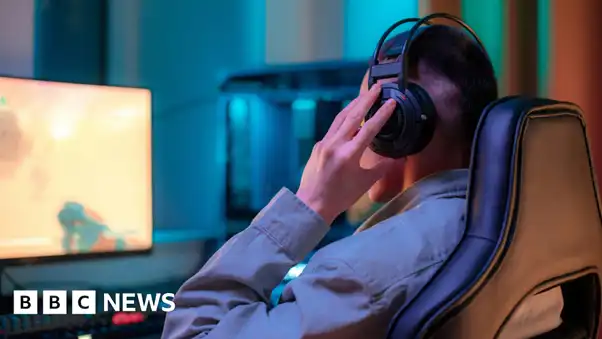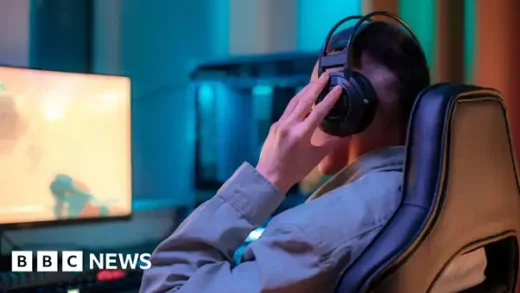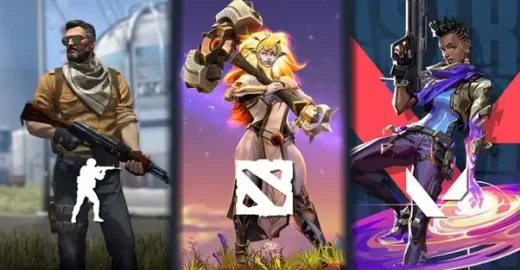Esports and large media companies, How media cover gaming events, Sport match gambling
Esports and large media companies: how media cover gaming events
28 September 2024
Esports has grown from niche communities to a global phenomenon, attracting millions of viewers and large investments. With this explosive growth, major media companies have taken note, integrating esports into their regular programming and coverage.
These partnerships between esports organizations and media giants have dramatically increased the visibility of esports events, providing mainstream audiences with access to tournaments and gameplay that were once only known to dedicated fans. This article explores how media companies cover gaming events, the challenges they face, and the impact this coverage has on the gaming industry.
The evolution of media coverage in esports
Initially, esports events were streamed primarily on gaming-specific platforms such as Twitch and YouTube Gaming, targeting gamers and enthusiasts. However, as esports began attracting larger audiences and sponsors, traditional media outlets, including ESPN, BBC, and FOX, began incorporating esports content into their coverage. These outlets saw the potential of esports to engage younger viewers and diversify their programming, leading to broadcasts of major tournaments and the creation of specialized esports segments. This transition has helped bring gaming into the mainstream, further solidifying its place as a major entertainment industry.
The media coverage extends beyond tournaments to include in-depth analysis, player interviews, and behind-the-scenes documentaries. Media outlets have also recognized the potential of monetizing esports content through sponsorships, advertisements, and partnerships. In fact, some platforms feature csgo skins gambling ads, highlighting how intertwined gaming and media have become.
How large media companies approach esports content
Esports content creation for large media companies differs significantly from the approach of gaming-specific platforms. Traditional media companies tend to package esports coverage similarly to other sports, with pre-game analysis, live commentary, and post-match discussions. The integration of esports into these formats has provided opportunities for casual viewers to engage with gaming content, making it more accessible and familiar to broader audiences.
Moreover, media companies often collaborate with esports organizations and game developers to produce exclusive content and behind-the-scenes material, helping fans gain a deeper understanding of the esports ecosystem. As these collaborations grow, companies have begun to recognize the lucrative opportunities in the gaming industry, particularly through advertising on best cs2 gambling sites. These partnerships allow media companies to reach gamers and the general public in new, innovative ways.
The role of media in promoting esports gambling
The rise of media coverage has also contributed to the visibility of esports-related gambling. As esports viewership grows, so too does the popularity of csgo gamble platforms, where users can wager on matches or bet in-game items like skins. Media outlets, by promoting esports events, indirectly bring attention to these gambling platforms, sometimes featuring ads for csgo gambling sites during broadcasts.
This growing intersection between esports and gambling has led to significant discussions about regulations and player safety. Media companies play a critical role in informing audiences about these platforms while also ensuring that their coverage adheres to legal and ethical standards. Prominent esports tournaments often have partnerships with gambling sites, drawing additional revenue streams and further integrating gambling into the esports viewing experience.
Challenges media companies face in covering esports
While the growth of esports presents opportunities, it also brings unique challenges for media companies. One of the key issues is understanding the diverse and rapidly evolving nature of the gaming community. Esports audiences are highly knowledgeable and expect detailed, insightful content, which traditional media outlets may struggle to provide due to a lack of expertise in gaming. Additionally, covering different titles such as CSGO (CS2), League of Legends, and Dota 2 requires specialized knowledge, making it difficult for general sports media to keep up with the demands of esports fans.
Furthermore, esports events operate on different schedules and time zones than traditional sports, requiring media companies to adapt their coverage strategies. Esports tournaments often last for hours and span several days, challenging media outlets to maintain viewer engagement. These logistical difficulties make it hard for mainstream media to fully integrate esports into their traditional coverage models.
Conclusion
The relationship between esports and large media companies is still evolving, but the future looks promising. As media companies continue to refine their approach to covering gaming events, they are likely to further elevate esports to new heights of popularity and acceptance. Through partnerships, exclusive content, and the integration of esports into mainstream media channels, gaming has become more accessible to a global audience.
At the same time, media outlets must navigate challenges, such as keeping up with the rapidly changing landscape of the gaming world and responsibly covering the growing csgo skins gambling market. Ultimately, the ongoing collaboration between media and esports is shaping the future of digital entertainment, offering exciting opportunities for fans, players, and broadcasters alike.
Comments on this Esports and large media companies: gaming events article are welcome
Architecture Design
Contemporary Building Designs – recent architectural selection from e-architect below:
Buildings
Monte Carlo Buildings
Hôtel de Paris Monte Carlo Reopening
Esports betting vs. sports betting
Comments / photos for the Esports and large media companies: how media cover gaming events page welcome.



